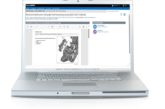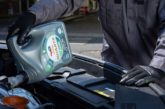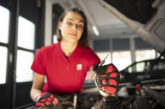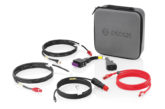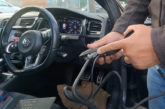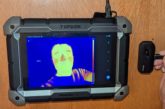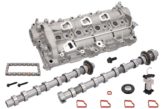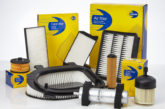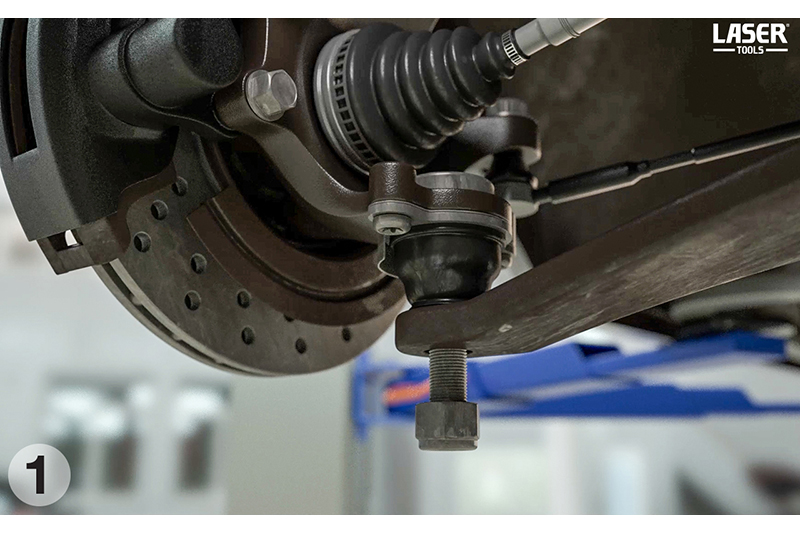
OESAA members Laser Tools and Schaeffler have joined forces to ensure aftermarket operators have access to the installation guidance you need to perform your job. Here, we present their guide to removing and replacing the ball joint of a Ford Transit.
The two main causes for premature wear on ball joints are:
1. Lack of lubrication, due to the grease leaking out or being washed out – possibly caused by damage to the protective boot
2. General wear that accelerates the onset of excess free play in the joint
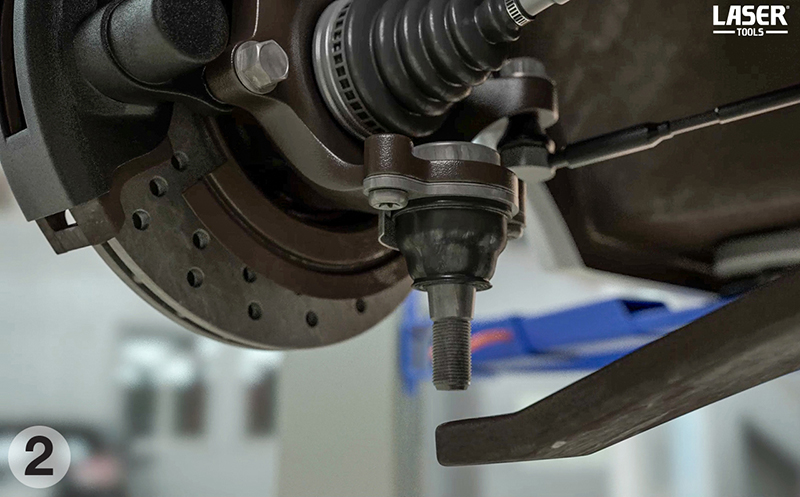
With the Transit remaining one of the most popular vans on our roads and often subjected to arduous driving conditions (to put it lightly), it is to be expected that at some point in its life, the bottom ball joints will need replacing.
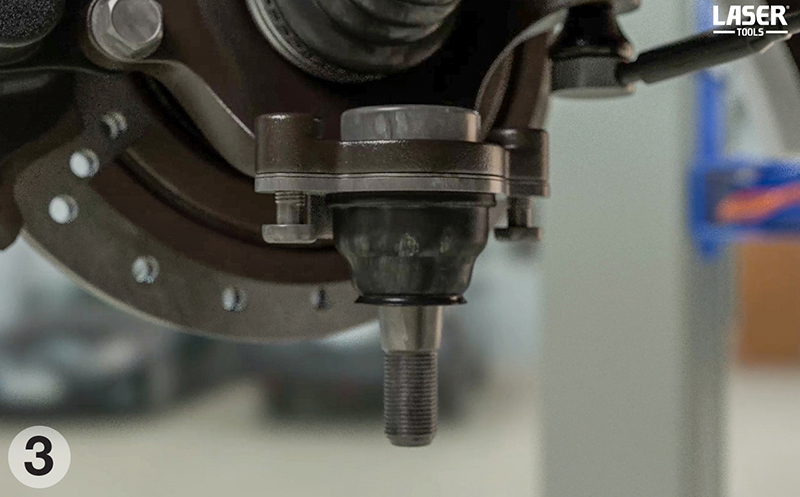
Steering and suspension repairs are ‘safety critical’, so quality should be the dominant factor, not only with the parts being fitted but also with the workmanship involved — it is important to make sure the customer understands this.
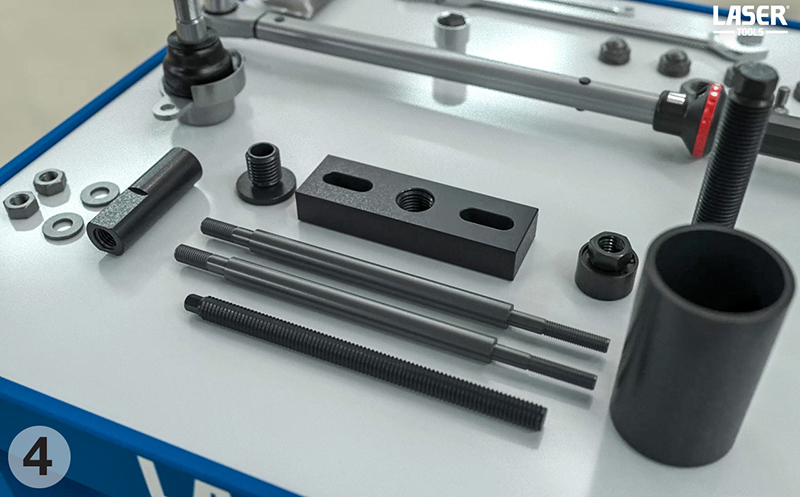
Bolt-in style ball joints
The late-model Ford Transit bolt-in style front lower ball joints are notoriously difficult to remove – being a very tight fit, even after the securing bolts have been removed. Laser’s ball joint removal and installation tool (part number 8272) is designed to easily extract and refit this bolt-in type of front lower ball joint on the vehicle, removing the need to use heat, hammer blows or a workshop press.
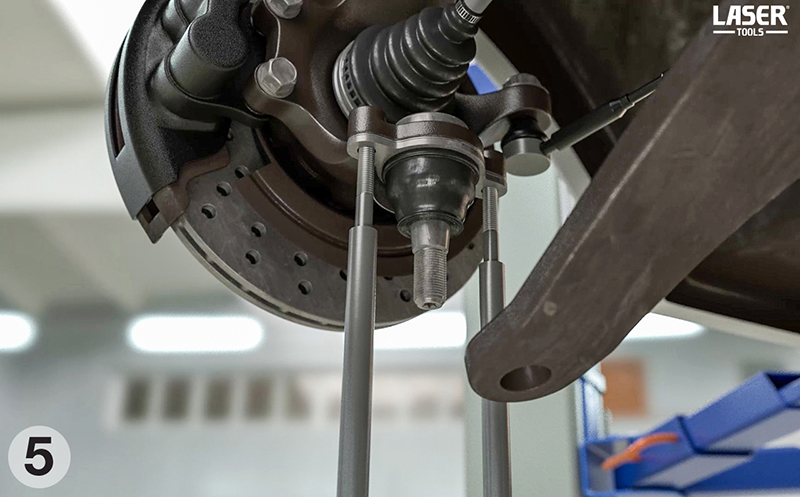
It’s simple to use: just remove the lower arm to ball joint nut, swing the arm out of the way, and then remove the ball joint securing bolts. Assemble the tool according to the detailed instructions supplied, then simply wind out the bush. Installation of the new bush is just as simple.
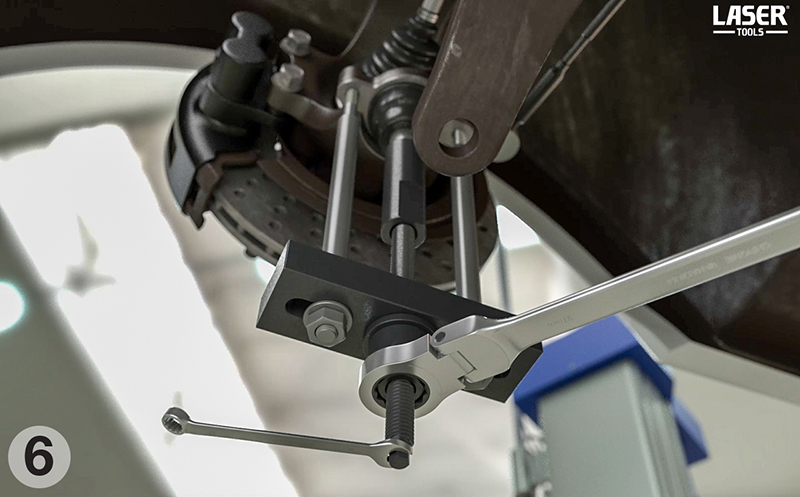
Applications include the Transit bus (2013-onwards) and Transit platform/chassis (2014-onwards). Use it to remove and install OEM ball joints references 1451917 and KT6C113K209AA
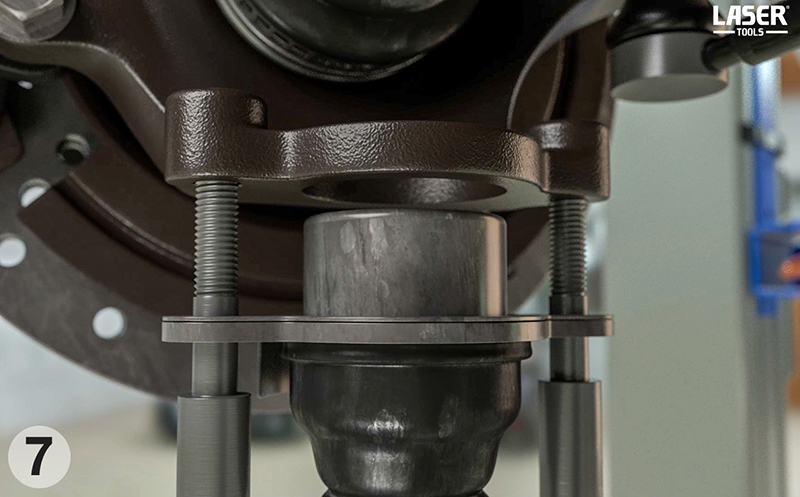
Note: 8272 is suitable for bolt-in type lower ball joints only. For clip type ball joints, use Laser part number 6614. Schaeffler’s Ford Transit FAG Ball joint (825 0104 10), like all of its FAG steering and suspension components, is manufactured to OE specifications and includes everything needed for a complete repair inside the box.
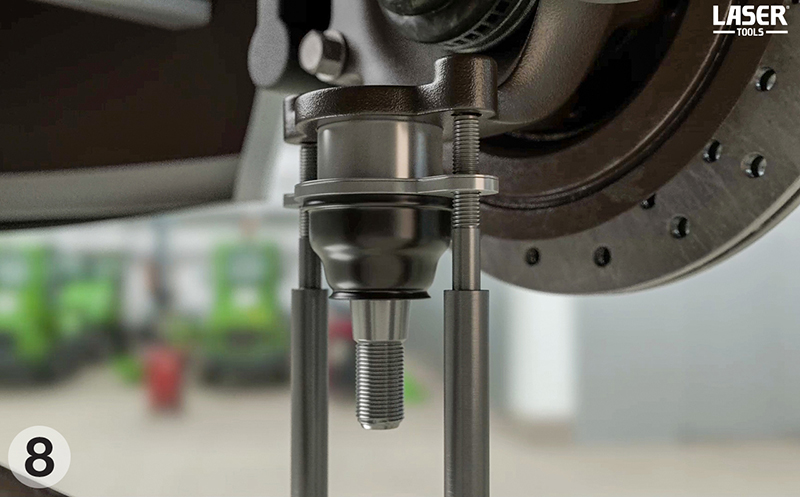
All metal ancillary parts are zinc flake coated to protect against corrosion, and its clear TPU (Thermo Plastic Polyurethane) boots give the strength of plastic with the flexibility of rubber, combined with the latest sealing technology. This component is supported with repair instructions on the REPXPERT information portal.
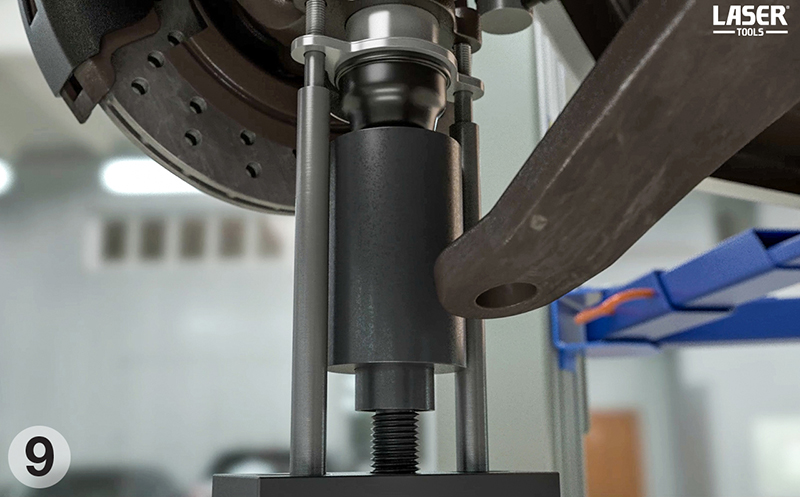
Removal (1-7)
Always refer to the vehicle manufacturer’s instructions for each specific application. It is best practice to replace both front ball joints as a pair. Support the vehicle with both front wheels off the ground and the front suspension hanging at full droop. Remove front wheels.
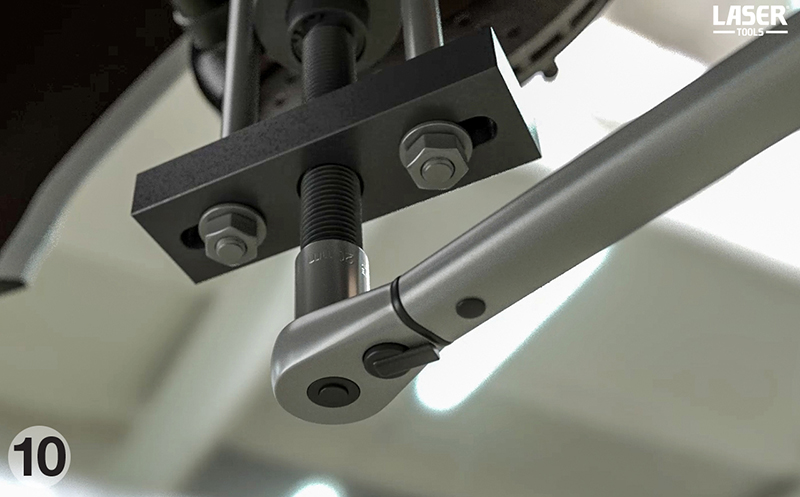
- Remove the lower ball joint taper nut
- Separate the joint from the arm to access the bottom of the hub
- Remove the two ball joint fixing bolts from the hub
- Assemble the components of the kit and lubricate the main force screw with molybdenum disulphide grease
- Ensure that the support rods are screwed in fully
- Ensure that the ball joint adaptor has been fully screwed onto the ball joint taper thread. Ensure that the top plate threaded adaptor and the support rod nuts and washers are all correctly tightened. Start to pull the ball joint out by turning the bearing nut, while holding the force screw steady
- Continue turning until the ball joint is fully removed
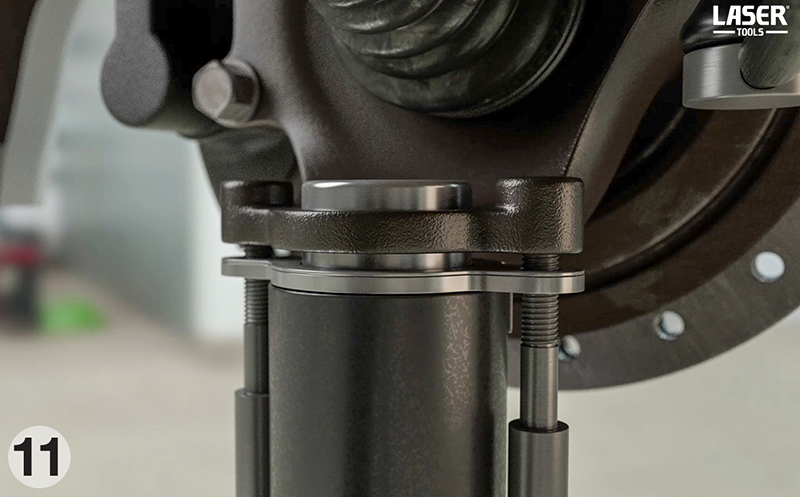
Ball joint installation (8-12)
- Remove the extraction assembly and reassemble the 8272 press-frame using the installation force screw. Lubricate the force screw with molybdenum disulphide grease. Place the new ball joint in position then refit the support rods to the hub
- Fit the insertion cup over the joint, then assemble the top plate to the support rods and force screw. Check the support rods are evenly tightened and the top plate is level to the hub face
- Press the ball joint into place by tightening the force screw
- Steadily bring it into place
- When the ball joint is fully inserted, refit the fixing bolts
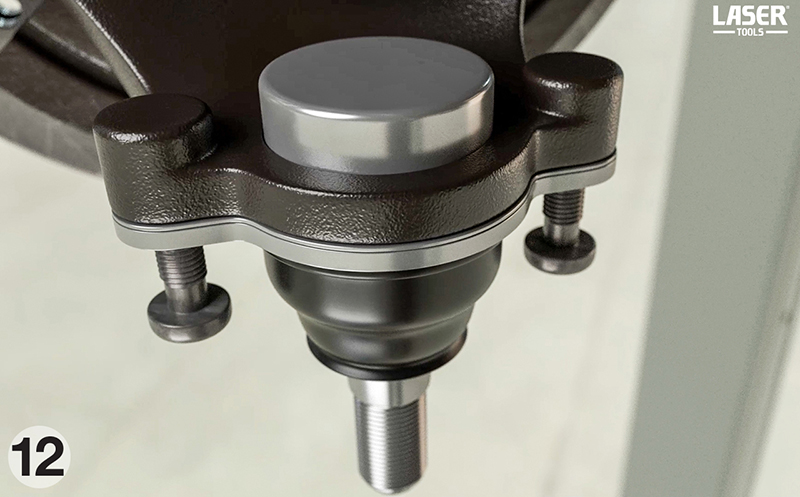
Refitting of removed suspension components can then be carried out in reverse order of removal. Remember to torque up all bolts to the manufacturer’s specification, and it is always recommended to carry out a wheel alignment after work has been carried out on the steering and suspension system.

